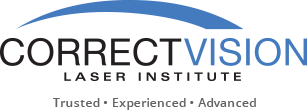Can Nighttime Smartphone Use Cause Temporary Blindness?
If you cuddle up with your smartphone in bed at night, you could be putting yourself at risk for temporary blindness. A recent report of two case studies published in the New England Journal of Medicine links nighttime smartphone use to a common but disturbing phenomenon in which vision is apparently lost in one eye for a short period of time.
Confusing Your Eyes
This strange occurrence is the result of your eyes’ natural ability to adapt to light and dark. When you look at something bright in a dark room, the light-sensitive pigments in your eyes become “bleached” and less responsive to incoming light. If you’re staring at your phone while lying on your side, one eye is often obscured by the pillow, leaving the other eye to take the brunt of the light exposure. Once the phone is off, the “bleached” eye can take several minutes to become adapted to the dark. During that time, the eye acts as though it’s blind.
A False Alarm
Losing vision in one eye can be a sign of a temporary blockage of blood flow in the brain known as a transient ischemic attack. Because of this, the natural “loss” of vision caused by adaptation to light scares some people into thinking they’ve suffered a stroke.
In the case study report, Dr. Gordon Plant, an ophthalmologist with Moorfields Eye Hospital in London, detailed the experiences of two women, each with a case of vision loss in one eye. One 22-year-old had nighttime vision loss in one eye for months, and a 40-year-old woman suffered a similar problem upon waking up in the morning. Both went to their doctors and had multiple tests performed before the underlying cause was pinpointed.
Because device use in bed is so common, even doctors may fail to recognize the phenomenon without detailed information about the circumstances surrounding its development.
Cause for Concern?
The women in Plant’s case study underwent MRIs, echocardiograms and other expensive, potentially stressful procedures in an attempt to arrive at a diagnosis. Instead of asking about their eye health practices, doctors assumed the vision loss was a symptom of a more serious problem.
Despite being upsetting for some, there are no known long-term problems associated with the nighttime vision loss induced by devices. However, if the condition continues to become more common among phone and tablet users, doctors will have to learn to ask specific questions to avoid unnecessary tests.
Switch Screens Off for Better Eye Health
You already know that using your phone, tablet or computer too close to bedtime can throw off your sleep patterns, making it more difficult to fall asleep and maintain a quality sleep schedule. Given the possibility of experiencing an alarming loss of vision on top of this, the smartest solution is to not stare at a device while you’re in bed. If you can’t seem to disengage, looking at the screen with both eyes instead of one will keep you from developing temporary blindness on one side.
Want to learn more about your eye health?
CorrectVision Laser Institute is one of Florida’s most advanced practices for vision impairments with extensive experience in LASIK. Our goal is to open your eyes to the world of great vision by offering unparalleled expertise and the most advanced technology available.
Contact us today for a consultation with one of our South Florida eye specialists, located in Hollywood, Weston and Pembroke Pines!


